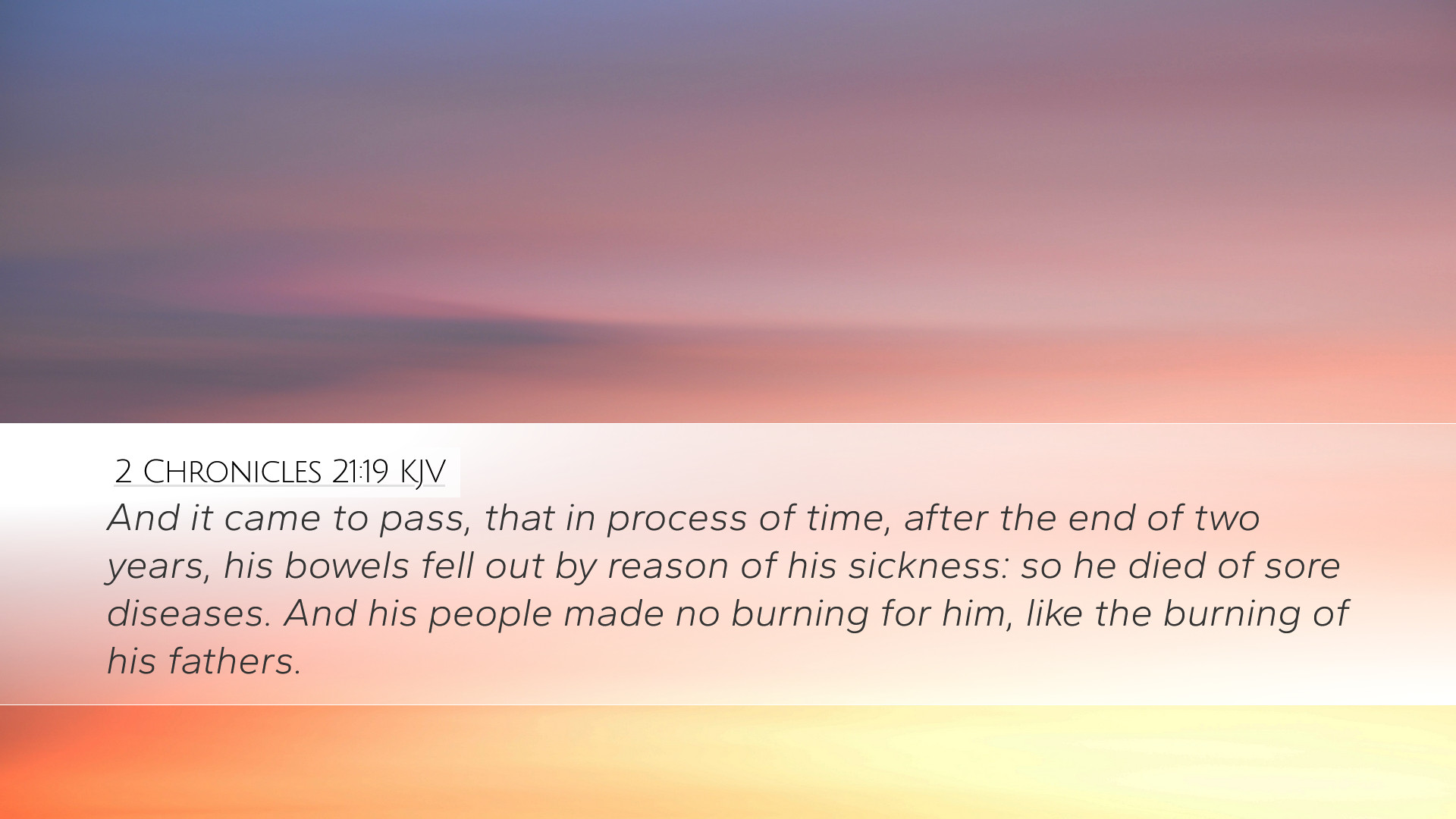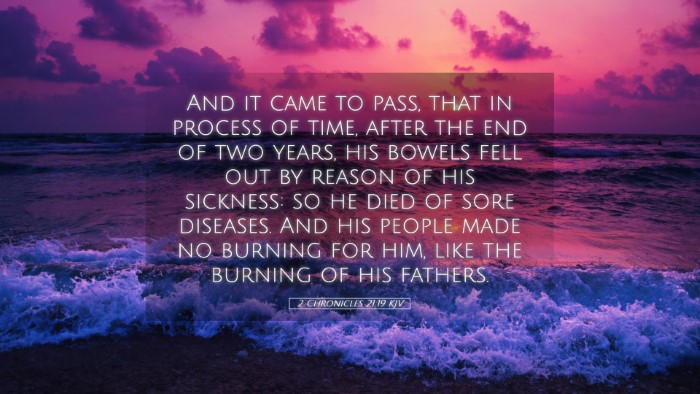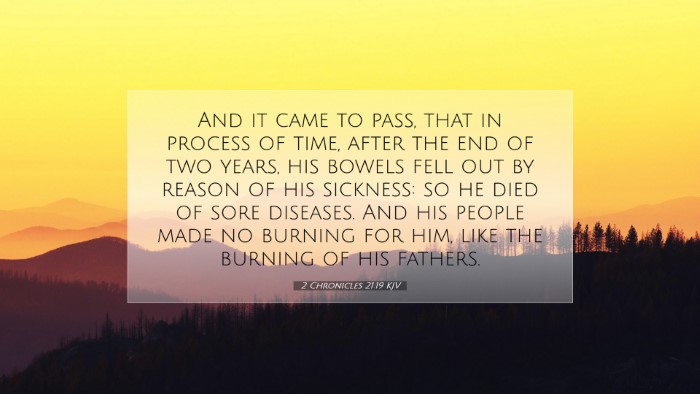Commentary on 2 Chronicles 21:19
Verse Context: 2 Chronicles 21:19 states, “And it came to pass, that in the process of time, after the end of the second year, his bowels fell out by reason of his sickness: so he died of sore diseases. And his people made no fire in his honor, like the fire of his fathers.” This verse encapsulates the end of King Jehoram’s reign and the divine judgment upon him for his unfaithfulness.
Introduction
This passage marks a significant moment in the history of Judah's monarchy, particularly regarding the consequences of sin and rebellion against God. The commentaries by Matthew Henry, Albert Barnes, and Adam Clarke highlight various themes in this verse that are essential for understanding the implications for both historical and contemporary audiences.
Commentary Insights
Matthew Henry's Commentary
Matthew Henry emphasizes the profound spiritual and moral lessons contained within Jehoram's life and death. Firstly, he points out the fulfillment of God’s judgment as described in the previous chapters. Jehoram, who led a life marked by evil, particularly in the murder of his brothers and the worship of Baal, faced a tragic end that serves as a warning for all leaders.
Key Observations:
- The Fulfillment of Divine Justice: Henry notes that the catastrophic events of Jehoram’s life reflect a profound principle of divine justice. His diseases signify the physical manifestation of spiritual decay.
- The Ignominious End: The lack of fire in his honor indicates a collective rejection of his rule; a stark contrast to traditional funerary customs that signify respect and reverence.
Albert Barnes' Notes
Albert Barnes offers a detailed examination of the circumstances surrounding Jehoram’s death. He illustrates how the passage serves not only as a historical account but also as a theological reflection on the nature of sin and its repercussions.
Key Insights:
- Spiritual Consequences: Barnes affirms that Jehoram's ailments represent the spiritual disintegration caused by departing from God's covenant.
- The Response of the People: The reaction of the populace, which involves neglecting to honor Jehoram at his death, underscores the detachment from his leadership. It serves as an illustration of how divine punishment can lead to public dishonor.
Adam Clarke's Commentary
Adam Clarke provides an analytical approach, delving into the nature of Jehoram’s illnesses and the socio-political ramifications of his wicked reign. He highlights a prophetic aspect of the narrative, as it aligns with the warnings given through earlier prophets.
Key Perspectives:
- Prophetic Judgment: Clarke connects Jehoram’s ailments with the prophetic warnings issued regarding the consequences of sin, depicting a God who is actively involved in human affairs.
- Theological Implications: He also discusses the broader theological implications of God’s judgment, portraying a God who does not overlook sin, a message that resonates across centuries.
Theological Reflections
The death of Jehoram evokes significant theological reflections, particularly concerning the nature of leadership, accountability, and divine justice. The narratives surrounding his reign provide important lessons for contemporary Christian leaders.
Accountability in Leadership
The failings of Jehoram serve as a stark reminder that leaders are held to a higher standard. In the Christian context, church leaders must recognize their accountability before God for their actions and the spiritual well-being of their communities.
The Nature of Sin and Its Consequences
Sin has tangible consequences, not only for the individual but also for the community. Jehoram’s choices negatively impacted Judah, which can prompt discussions among ministry leaders about the far-reaching effects of moral failure.
The Role of Divine Justice
Finally, the passage reiterates the concept of divine justice. God's judgment may not always be immediate, but as seen in Jehoram's fate, it is inevitable. This principle encourages believers to remain steadfast in faithfulness, knowing that divine justice prevails.
Conclusion
2 Chronicles 21:19 stands as a potent narrative in the Scriptures echoing timeless truths about sin, judgment, and accountability. The insights provided by Matthew Henry, Albert Barnes, and Adam Clarke serve as a rich resource for pastors, students, theologians, and Bible scholars, encouraging a reflective study on how these themes apply to both personal lives and broader societal dynamics.


